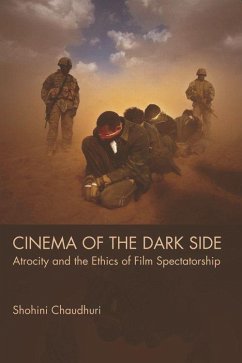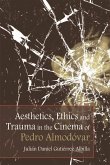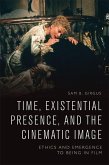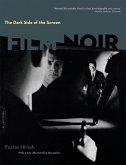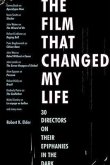'In this brilliantly researched and timely book Chaudhuri sets out sustained clear thinking about the transnational cinematic treatment of state terror after 9/11, powerfully cutting through and exposing the many forms of "perception management" that have clouded lesser studies of the ethical viewing experiences films create through their aesthetic choices.' Dr Catherine Grant, University of Sussex A ground-breaking comparative analysis of cinematic images of atrocity, combining critical perspectives on contemporary film and human rights A few days after 9/11, US Vice-President Dick Cheney invoked the need for the USA to work 'the dark side' in its global 'War on Terror'. Cinema of the Dark Side explores how contemporary cinema treats state-sponsored atrocity, evoking multiple landscapes of state terror. Investigating the ethical potential of cinematic atrocity images, this book argues that while films help to create and confirm normative perceptions about atrocities, they can also disrupt those perceptions and build alternatives. Asserting a crucial distinction between morality and ethics, a new conceptualisation of human rights cinema is proposed, one that repositions human rights morality within an ethical framework that reflects upon the causes and contexts of violence. It builds upon theories of embodied spectatorship to offer a new perspective on the ethics of spectatorship, providing readers with fresh insights into how we respond to atrocity images and the ethical issues at stake. Covering a diverse spectrum of 21st-century cinema, Shohini Chaudhuri deals with documentary or fictional representations of atrocity such as state-sanctioned torture, genocide, enforced disappearance, deportation and apartheid. Close analysis of contemporary films includes Zero Dark Thirty (2012), Standard Operating Procedure (2008), Hotel Rwanda (2004), Sometimes in April (2005), Nostalgia for the Light (2010), Chronicle of an Escape (2006), Children of Men (2006), District 9 (2009), Waltz With Bashir (2008) and Paradise Now (2005). Cinema of the Dark Side is a valuable resource for students and researchers in Film Studies and Human Rights alike. Shohini Chaudhuri is Senior Lecturer in the Department of Literature, Film and Theatre Studies at the University of Essex. Cover image: Taxi to the Dark Side, 2007, Alex Gibney (c) Jigsaw Productions/The Kobal Collection Cover design: Barrie Tullett

